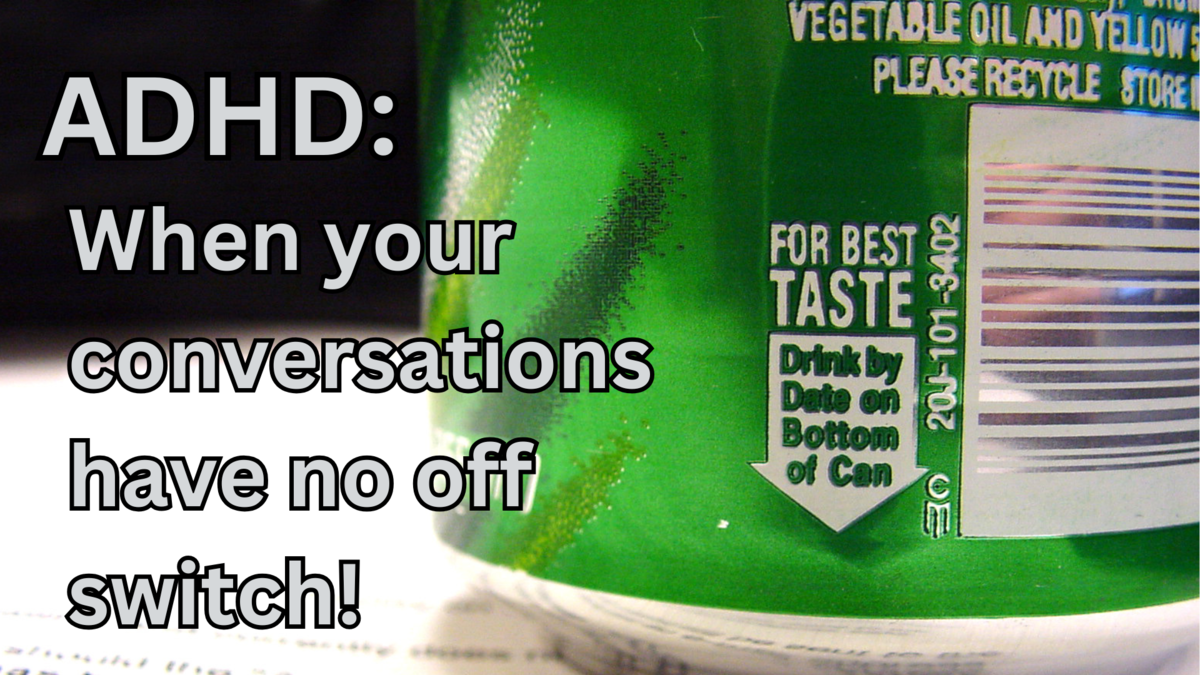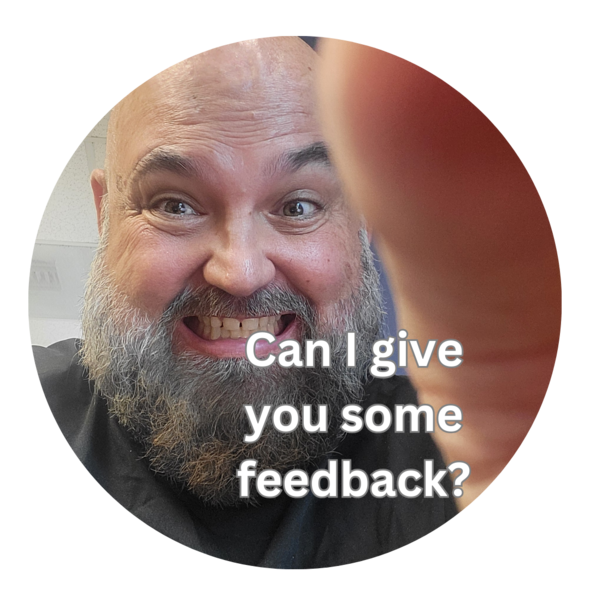Ever get so excited in a conversation that you accidentally hijack it with your brain’s version of a firehose? No? Just me? Well, buckle up kiddos, because we’re going on a wild ride through my early days as a Sales Engineer (SE), where impulsivity wasn’t just a trait—it was my superpower (and my kryptonite).
Back in the day, I was a walking, talking adrenaline shot of excitement. I was basically the human version of a Mountain Dew-fueled rocket ship—sugar high and all. Whenever I was in a meeting with a client, I’d talk so fast, it was like I was trying to break the world record for “Most Words Per Minute.” My thoughts were in a constant race, and if I saw a tiny connection to something I was passionate about? BOOM! There it was—blurted out like a verbal grenade. Topics were changing faster than a toddler on a sugar high… which, honestly, was probably me on the inside, considering I was also downing Mountain Dew at regular intervals just to keep up with my brain.
Sometimes, this worked out. I mean, clients love passion, right? And when they saw me get all fired up about a solution, they were often impressed. “Dude, you were on fire!” my sales colleague would say after a particularly high-energy meeting. (Note: This is the moment where I was in full sales Jedi mode, and they were totally on board.)
But then... there were the other times. You know, the ones where I could see the client’s eyes glazing over like I was speaking in tongues. Or the moment when I realized I had just jumped from discussing a firewall to the meaning of life—and the client had no idea how we got there. The same sales person, now with a slightly concerned look on their face, would give me a gentle nudge and say, “Uh, dude, maybe... turn it down a notch?”
Yeah, not so much “on fire” anymore. More like “smoking wreckage of a conversation.”
I quickly realized that if I didn’t tame this excitement, it might not just cost me the deal—it might cost me my job. So, I learned to rein it in. But here’s the twist: once I got control of it, my impulsivity became one of my most useful skills. I could inject energy and enthusiasm into meetings while keeping everything relevant. And that’s what eventually led me into Sales Enablement, where I could use my experience and excitement to train others. Who knew that my scatterbrained excitement would become an asset?
Taking feedback is tough for everyone, but throw ADHD into the mix, and it feels like trying to juggle while riding a unicycle—on a tightrope. Here’s a post about how to handle it when the struggle is real.
Impulsivity and ADHD are like a dynamic duo—fast, unpredictable, and sometimes a little out of control. If you’ve got ADHD, you’ve probably had those moments when your brain races ahead, and suddenly you’re blurting something out or jumping from topic to topic without even realizing it. That’s the impulsivity at work. It’s like your thoughts can’t wait to escape, and before you know it, you’ve derailed the conversation. But here’s the good part: recognizing that impulsivity is tied to ADHD is the first step in managing it. You can totally work on this with strategies like mindfulness, self-awareness, and taking a beat to pause before launching into full-blown verbal excitement. Trust me, I’ve been there—and with some practice, you can turn that energy into something productive without derailing the conversation.
So, let’s talk about how you can spot impulsivity in your own conversations (before it derails your career). Here are three things to watch out for, and a few super funny tips on how to keep your conversations from going off the rails:
1. Jumping Topics Like a Frog on Caffeine
If you’re halfway through a sentence and your brain is already onto the next big idea (totally unrelated to the conversation at hand), slow down.
Solution: Practice pausing. Yep, just pause. I know it’s hard, but you’ll find that your ideas are way more powerful when they’re presented clearly instead of in a race to get them all out at once. Don’t be afraid to let a little silence hang—your brain might just catch up!
2. Blurting Out the First Thing That Comes to Your Mind
Sometimes we all get so excited about what we know that we forget to filter it first. That’s how I ended up talking about firewalls, then immediately telling the client how much I loved my mom’s spaghetti recipe. (I mean, they both involve connections, right?)
Solution: If your brain says, “Say it now!”—take a beat and ask yourself, “Does this help the conversation?” If it doesn’t, kindly pack it away for a later date (and maybe for your next dinner party).
3. Over-Explaining Things That Don’t Need Explaining
Ah, yes. I could really get into the weeds. Imagine explaining how to reset a password, and suddenly you're giving a TED talk on network security. It’s like I had this urgent need to prove how much I knew, which…well, wasn’t always what the client needed.
Solution: Stay on the “needs-to-know” track. If you find yourself venturing into deep tech jargon or long-winded explanations, stop and ask: “Is this what they want to know?” If not, redirect back to what’s actually important to them.
In Conclusion . . .
So, yeah, if you're an excitable conversationalist (and let's face it, you probably are if you’re reading this), be aware of how quickly you can spiral into the abyss of over-talk. Recognize those moments where you start losing the thread and put a mental pause on the "shiny objects" your brain loves to chase. I did it. And if I can wrangle my impulsivity, so can you.
Now, I know this is super hard. Trust me, I’ve been there. It’s not easy to reign in that excitement when your brain is firing on all cylinders. But it’s really important that you work on it. Why? Because getting a handle on it can take your conversations—and your career—to a whole new level. So, when you catch yourself getting a little too on fire, just smile, give a quick pause, and turn that energy into something valuable. Who knows, that excitement could just be your ticket to your own version of Sales Enablement (or maybe just getting through a conversation without making it weird).
But hey, if all else fails—at least you’ll make a great TED talk out of it someday.
#ADHD #Impulsivity #CommunicationSkills #ProfessionalGrowth #Mindfulness #CareerTips #ADHDSupport #ConversationHacks #SelfImprovement #PersonalDevelopment #YoungProfessionals #SalesEngineer #GorillaJournalism #CareerAdvice #BeBetter #HeroMaker



